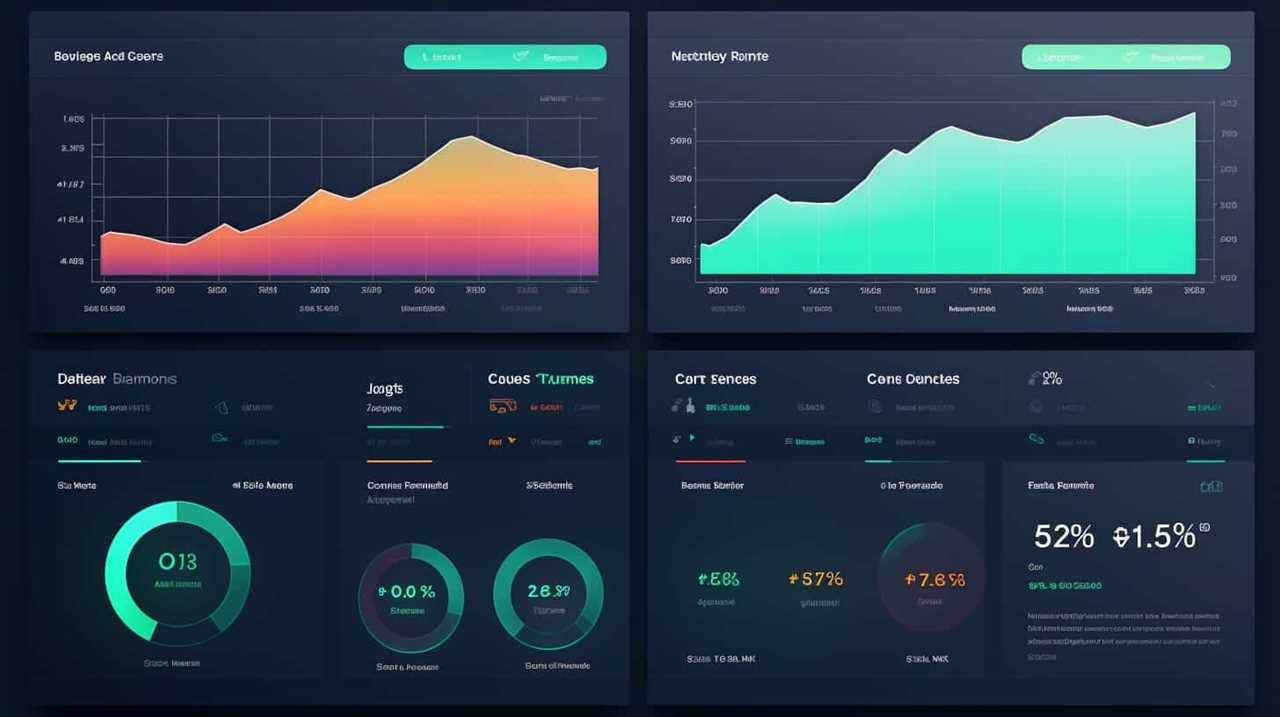Many of us understand the importance of SEO in improving our websites, but did you know that performing a technical audit is a crucial stage in optimizing your site?
In fact, studies show that 72% of websites have technical issues that can negatively impact their search engine rankings.
That’s where a technical audit comes in. By analyzing your site’s structure, navigation, indexing, and performance, you can identify and fix any technical SEO issues that may be holding your site back.
So, let’s dive into the world of technical audits and learn how to ensure our websites are optimized for success.

Key Takeaways
- Technical audits are important for optimizing website performance and improving search engine rankings.
- Key elements of a technical audit include assessing site security, analyzing server configuration, evaluating site structure and navigation, and optimizing for search engine crawling and indexing.
- Site structure and navigation should be well-structured, logical, and organized to aid search engines and provide a good user experience.
- Mobile optimization, responsive design, and user experience considerations are crucial aspects of technical audits for SEO success.
Importance of Technical Audits in SEO
One of the key aspects of our SEO strategy is conducting regular technical audits to ensure optimal website performance. Technical audits play a crucial role in improving site architecture and enhancing technical SEO.
By assessing the technical elements of a website, such as site speed, crawlability, and mobile-friendliness, we can identify areas that need improvement and implement necessary changes. These audits help us optimize the site structure, ensuring that search engines can easily crawl and index our pages, leading to better visibility in search results.
They also enable us to identify and fix any technical issues that may be affecting the website’s performance and user experience. Through technical audits, we can enhance our website’s overall SEO health and drive organic traffic by ensuring that it meets the latest technical standards and best practices.
Key Elements of a Technical Audit
To conduct a comprehensive technical audit, we assess various key elements of a website’s technical performance.

Two crucial elements that we focus on are site security and server configuration.
Site security is of utmost importance as it ensures protection against potential threats and vulnerabilities. We examine the website’s security measures, such as SSL certificates, firewalls, and malware detection systems, to ensure that it’s well-protected.
Server configuration plays a vital role in determining the website’s speed and performance. We analyze factors such as server response time, caching settings, and resource allocation to identify any potential issues that may be impacting the website’s performance.
Understanding Site Structure and Navigation
We continue our analysis by examining the site structure and navigation, key components that contribute to the overall technical performance of a website. Site architecture refers to the organization and hierarchy of the pages on your website, while URL structure refers to the format and organization of your website’s URLs. A well-structured site with clear navigation helps search engines understand the content and hierarchy of your website, making it easier for them to crawl and index your pages.

To illustrate the importance of site structure and navigation, here is a comparison table:
| Poor Site Structure and Navigation | Well-Structured Site and Navigation |
|---|---|
| Complex and confusing navigation | Clear and intuitive navigation |
| Inconsistent URL structure | Logical and organized URL structure |
| Pages buried deep in the hierarchy | Shallow hierarchy with easy access |
| Difficult for search engines to crawl and index | Easy for search engines to crawl and index |
Analyzing Website Indexing and Crawlability
Moving on to the analysis of website indexing and crawlability, let’s now delve into how search engines index and crawl the pages of your website. Understanding this process is crucial for effective SEO analysis.
Search engines use bots, also known as spiders or crawlers, to crawl your website and gather information about its content and structure. These bots follow links on your site to discover and index new pages.
It’s important to ensure that your website architecture is optimized for easy crawling and indexing. This can be achieved by having a clear and logical site structure, using XML sitemaps, and optimizing your robots.txt file.

Regularly monitoring your website’s indexation status and resolving any crawlability issues will help improve your site’s visibility in search engine results.
Evaluating Website Speed and Performance
Our assessment of website speed and performance involves analyzing the loading times and overall functionality of the site.
Here are some key aspects we consider when evaluating website speed and performance:
- Loading Times: We examine how quickly the website loads for users. Slow loading times can negatively impact user experience and SEO rankings.
- Server Response Time: Optimizing server response time is crucial for ensuring fast website performance. We assess the server’s ability to handle requests and deliver content efficiently.
- Website Security: We also evaluate the website’s security measures to protect against potential vulnerabilities and ensure user data is safe.
- Overall Functionality: We analyze the functionality of the website, including navigation, responsiveness, and compatibility across different devices and browsers.
Mobile-Friendly Optimization and Responsiveness
When it comes to SEO, mobile optimization is crucial for success. It ensures that your website is user-friendly and accessible on different devices, including smartphones and tablets.

Responsive design, in particular, offers numerous benefits such as improved user experience, higher conversion rates, and better search engine rankings.
It’s important to consider the user experience when optimizing your website for mobile devices, as this can greatly impact your overall SEO strategy.
Importance of Mobile Optimization
Mobile optimization is crucial for improving website performance and user experience. In today’s digital landscape, where mobile usage has surpassed desktop, it’s essential to prioritize mobile design and mobile SEO.
Here are four reasons why mobile optimization is so important:

- Enhanced user experience: A mobile-friendly website ensures that users can easily navigate and interact with your content on their mobile devices, leading to a positive user experience.
- Higher search rankings: Google considers mobile-friendliness as a ranking factor. Optimizing your website for mobile can improve your search engine rankings and increase organic traffic.
- Faster loading speed: Mobile optimization involves optimizing page speed, resulting in faster loading times. This is crucial as mobile users have shorter attention spans and expect instant access to information.
- Competitive advantage: With more and more users accessing the internet via mobile devices, having a mobile-optimized website gives you a competitive edge over businesses that neglect mobile optimization.
Responsive Design Benefits
Implementing responsive design offers numerous benefits for optimizing a website’s mobile-friendliness and responsiveness.
One of the key benefits is improved user engagement. With responsive design, your website automatically adjusts and adapts to fit any screen size, whether it’s a desktop, tablet, or mobile device. This seamless user experience ensures that visitors can easily navigate and interact with your website, regardless of the device they’re using.
By providing a mobile-friendly experience, you can attract and retain more users, leading to increased engagement and conversions.
Responsive design also helps improve your website’s search engine rankings, as search engines prioritize mobile-friendly websites in their search results.

In today’s mobile-first world, it’s essential to prioritize responsive design to enhance user engagement and drive success for your website.
User Experience Considerations
With regards to optimizing user experience, we prioritize the consideration of mobile-friendly optimization and responsiveness through a technical audit. This ensures that our website is accessible and user-friendly across different devices, leading to a better overall user experience.
Here are some key points to consider:
- Mobile-friendly optimization: We ensure that our website is optimized for mobile devices, as more and more users are accessing the internet through their smartphones and tablets.
- Responsiveness: Our website is designed to adapt to different screen sizes and resolutions, providing a seamless browsing experience for our users.
- Usability testing: We conduct thorough usability testing to identify any potential issues that may affect user experience, such as slow loading times or difficult navigation.
- Conversion rate optimization: By optimizing the user experience, we aim to increase our conversion rates and drive more conversions on our website.
By focusing on mobile-friendly optimization and responsiveness, as well as conducting usability testing and conversion rate optimization, we can enhance the overall user experience on our website.

This sets the stage for the subsequent section, where we’ll discuss how to identify and fix technical SEO issues.
Identifying and Fixing Technical SEO Issues
We frequently identify and fix technical SEO issues to improve website performance.
One common issue we encounter is server errors, which can negatively impact a website’s visibility and user experience. By conducting regular audits, we can identify and resolve any server errors that may be affecting the website’s performance.
Another crucial aspect of technical SEO is optimizing meta tags. Meta tags provide information about a webpage to search engines, and optimizing them can help improve the website’s search engine rankings. We ensure that meta tags are properly optimized with relevant keywords, accurate descriptions, and compelling titles.

Best Practices for Conducting a Technical Audit
To ensure the effectiveness of our technical audit process, it’s important to follow best practices for conducting a thorough assessment of a website’s SEO performance. Here are some key best practices for technical analysis:
- Start with a comprehensive crawl of the website to identify any technical issues such as broken links, duplicate content, or slow page load times.
- Pay close attention to the website’s URL structure, ensuring it’s clean, concise, and optimized for search engines.
- Check for proper implementation of metadata, including title tags and meta descriptions, to ensure they’re unique, relevant, and keyword-focused.
- Evaluate the website’s mobile-friendliness and responsiveness, as mobile optimization is crucial for SEO success.
Frequently Asked Questions
How Can Technical Audits in SEO Improve Search Engine Rankings?
Improving search engine rankings can be achieved by conducting regular technical audits in SEO.
These audits are important because they help identify and fix any technical issues that may be affecting the website’s performance and visibility on search engines.
By addressing issues such as broken links, slow page load times, and mobile responsiveness, technical audits ensure that the website is optimized for search engines.

This optimization leads to higher rankings and increased organic traffic.
What Are Some Common Technical Issues That Can Negatively Affect a Website’s Seo?
Common technical issues impacting SEO can negatively affect a website’s rankings. These issues include:
- Slow page speed
- Broken links
- Duplicate content
- Improper URL structures
- Missing meta tags
To prevent these issues, we recommend conducting regular technical audits. This involves analyzing the website’s code, crawlability, and indexability to identify and fix any technical SEO problems.
Is It Necessary to Conduct a Technical Audit Regularly, or Is a One-Time Audit Sufficient?
Regular technical audits are of utmost importance in SEO. Neglecting them can expose your website to potential risks. It’s not enough to conduct a one-time audit; continuous monitoring is essential.

By regularly evaluating and addressing technical issues, we ensure our website remains optimized and accessible to search engines. This helps improve our website’s visibility, ranking, and overall performance.
Continuous technical audits are a vital aspect of maintaining SEO mastery and maximizing the potential of our online presence.
What Tools or Software Can Be Used to Perform a Technical Audit Effectively?
When it comes to technical audits in SEO, it’s essential to have the right tools and software to perform them effectively.
There are various technical audit tools available that can help identify issues and optimize your website’s performance.

Best practices for technical audits include checking for broken links, analyzing website speed, examining XML sitemaps, and ensuring proper URL structure.
Are There Any Specific Steps or Guidelines to Follow When Fixing Technical SEO Issues Discovered During an Audit?
When it comes to fixing technical SEO issues discovered during an audit, there are some best practices and step-by-step guidelines that can help ensure success.
First, it’s important to prioritize the issues based on their impact on search engine rankings.
Then, we can begin addressing them one by one, starting with the most critical ones.

Conclusion
In conclusion, conducting a technical audit is crucial for successful SEO. By evaluating site structure, indexing, speed, and mobile optimization, we can identify and fix any technical SEO issues that may be hindering our website’s performance.
Following best practices and regularly conducting audits will ensure that our site is optimized for search engines and provides a seamless user experience.
Remember, ‘A stitch in time saves nine’ – addressing technical issues promptly can prevent larger problems down the line.










